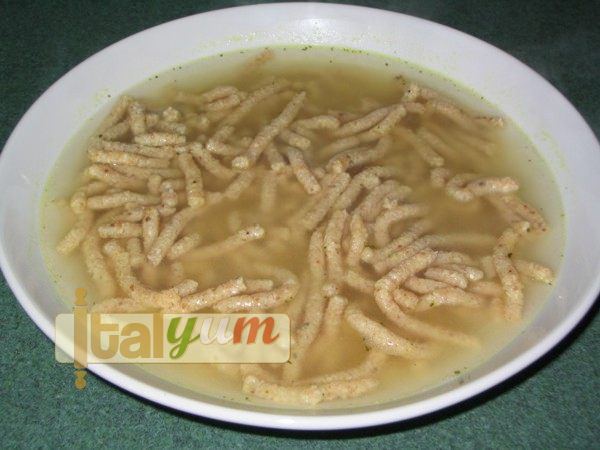
Passatelli in broth (Passatelli in brodo)
In my opinion this recipe is the work of a genius! There’s nothing that could give you a better example of how Italians can reinterpret recipes, just changing the method you process the ingredients rather than changing the ingredients. A while ago I published a great recipe called “zuppa pavese”, whose bulk ingredients were bread, egg and Parmesan cheese. Pavese comes from Pavia, a beautiful city south of Milan. Now, just move 300 km East, in the Romagna region of Italy, and you have the same bulk ingredients, processed in a different way, to make this wonderful dish called “passatelli”. Passatelli (plural word) means literally “to pass them through”, which recalls the act of making them using a kind of potato press specifically designed for passatelli. Passatelli are usually eaten “in brodo” (with stock), but can also be eaten dry, topped with a “ragu’ di carne” (meat sauce) or “ragu’ di pesce” (a sauce made with fish). The recipe belongs to the “cucina povera” (the cooking of the poor people), when people used to make ends meet with what they have got and where inventiveness played a big role to make the dishes more attractive. I got the recipe during a recent trip to Italy, in Romagna, where I also managed to speak with the locals and understands the variation on the theme you may find from family to family.Note: when in Italy, I have found out that some people, especially restaurants, add some flour to keep the passatelli mixture together. Purists told me that adding flour is a short-cut for those who cannot make passatelli or for restaurants that cannot afford having problem with the mixture, just minutes before the service.
Equip your kitchen – Available at Amazon now
Clicking on equipment pictures takes you to Amazon where you can buy the items. We get a small revenue share of anything you buy which helps keep the site running.
Ingredients
- 200 grams (7 oz) Breadcrumbs (from stale bread) Breadcrumbs should be made using stale bread that has become hard enough to be grated. Use bread that has been made without the adding of olive oil, otherwise you will end up with baby food once the passatelli are put into the boiling stock.
- 200 grams (7 oz) Grated Parmesan cheese
- 4 Eggs
- 1 tsp Nutmeg
- Lemon zest from a 1/4 of the lemon
- Salt and pepper to season
- Approx 3 litres of chicken stock
Instructions
- First, reduce the bread in fine breadcrumbs and grate the Parmesan cheese.
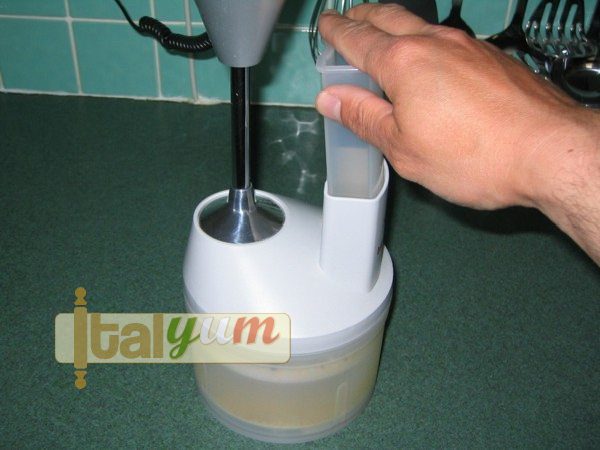
- Break the eggs into a large bowl.
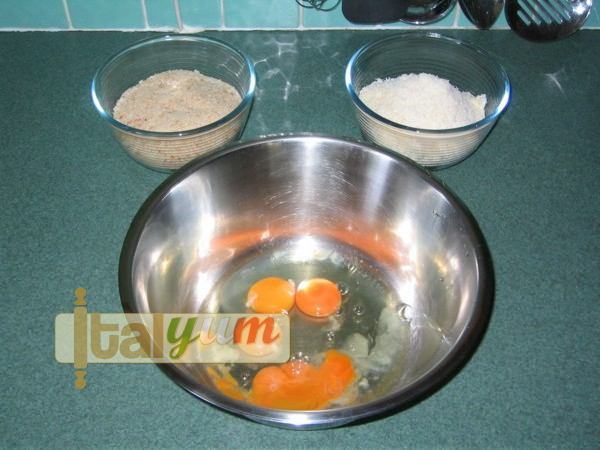
- Season with salt.
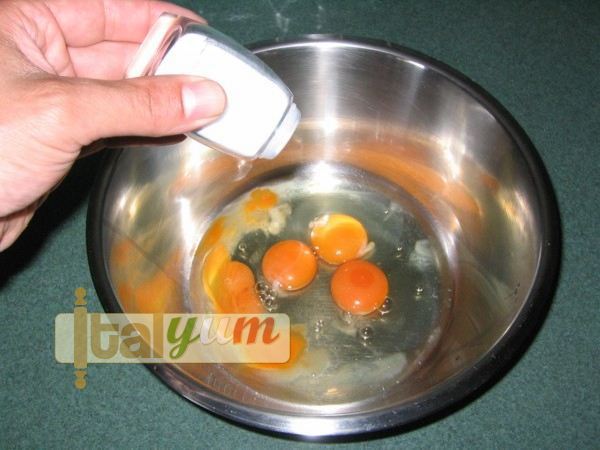
- Season with pepper.
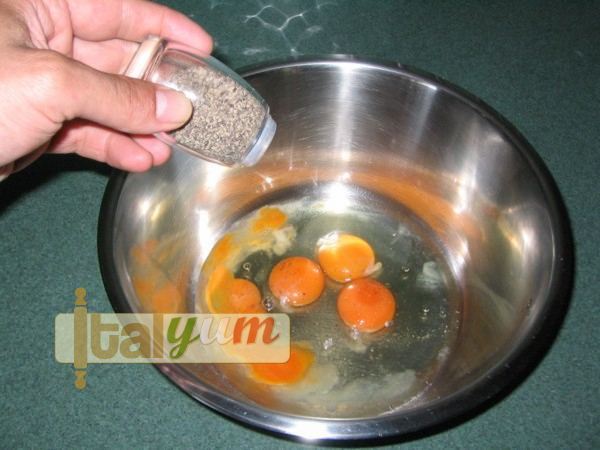
- Whisk the eggs for few seconds and set the bowl apart.
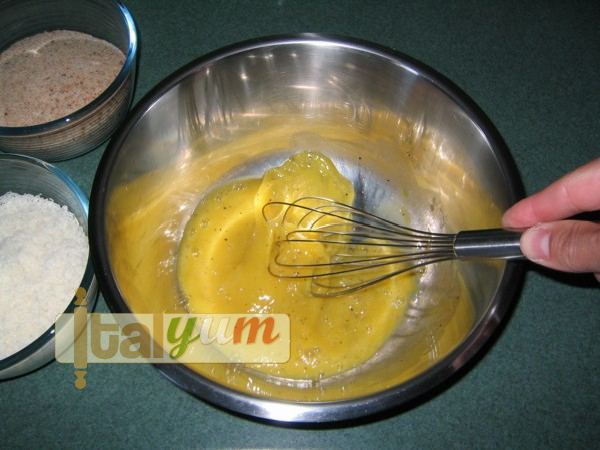
- Then, take a second bowl and add the breadcrumbs into it.
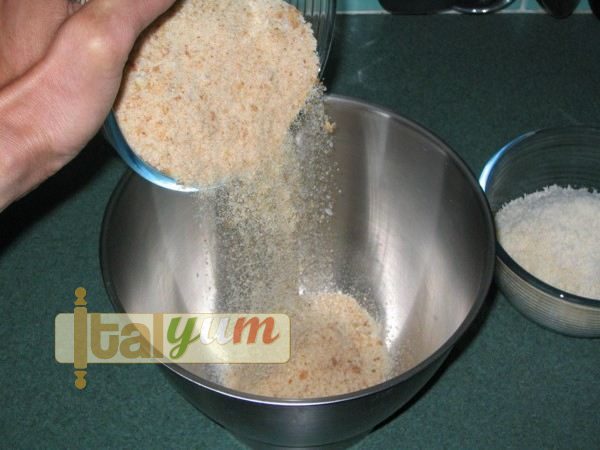
- Add the nutmeg.
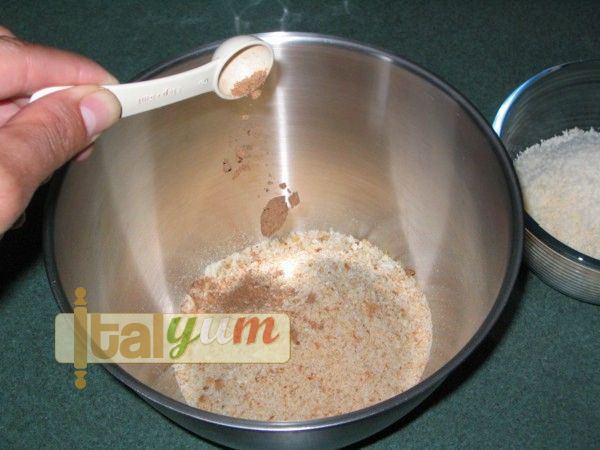
- Stir to evenly distribute the nutmeg.
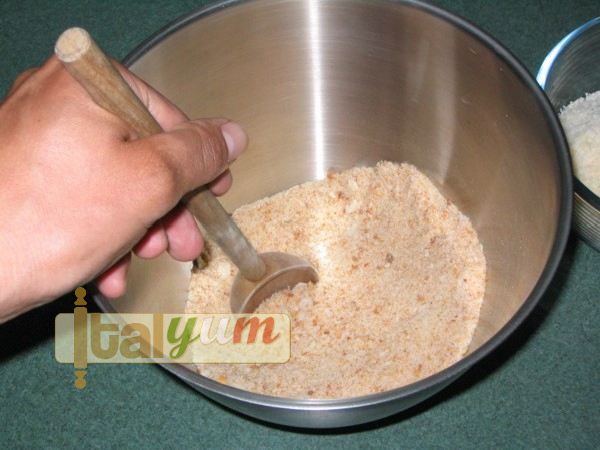
- Add the Parmesan cheese.
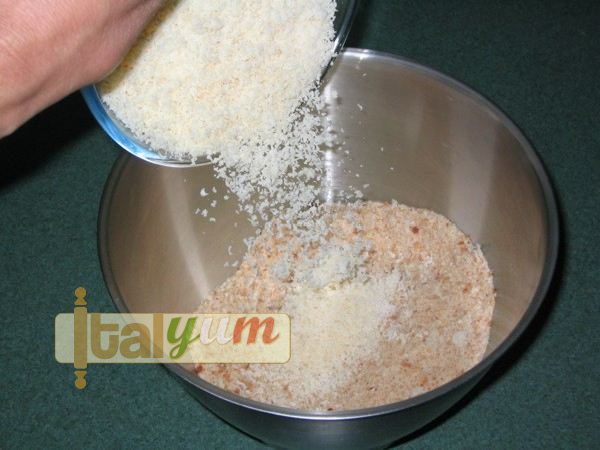
- Add the lemon zest.
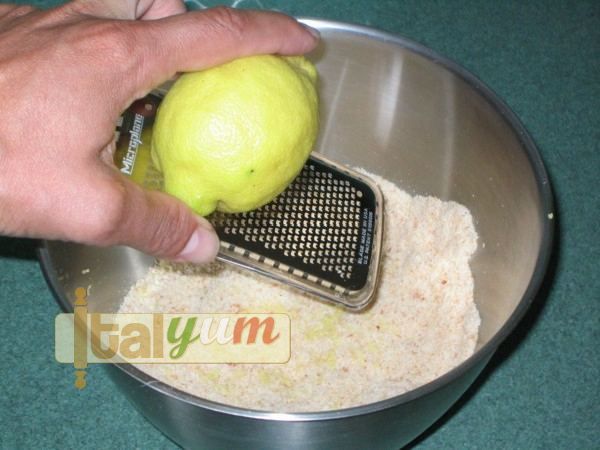
- Stir to evenly combine all the ingredients. I will call this mixture “dry mix”.
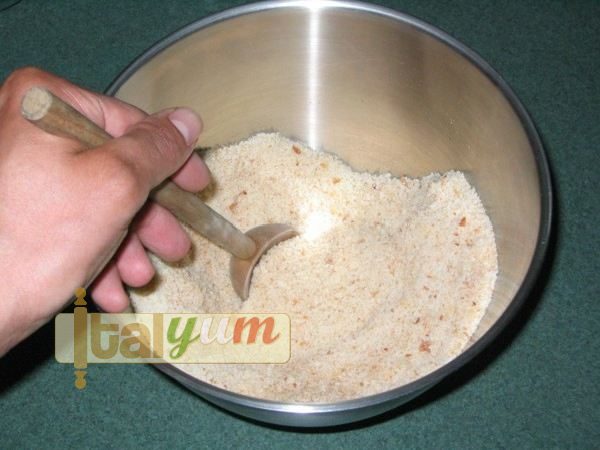
- Gradually, add the dry mix to the eggs. Stir with a wooden spoon while doing so.
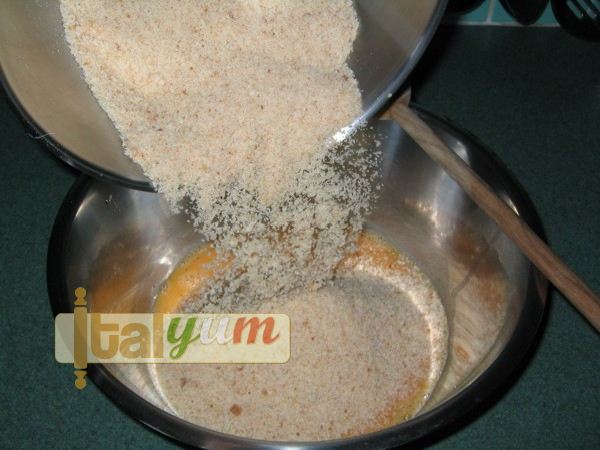
- Once all the eggs have been absorbed into the dry mix, start working the mixture with your hands.
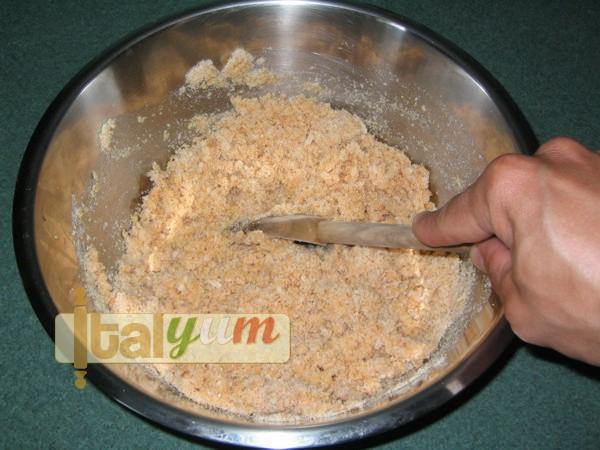
- It’s a bit like working a pasta dough with your hands. Work the dough for few minutes, until you think all the ingredients are well combined.
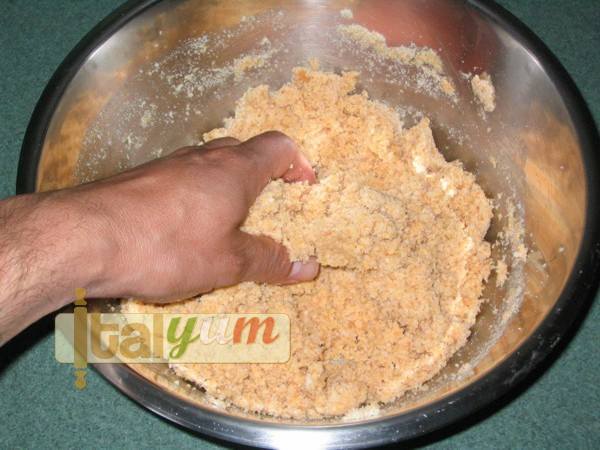
- The final result should be a compact ball, slightly harder than a pasta dough.
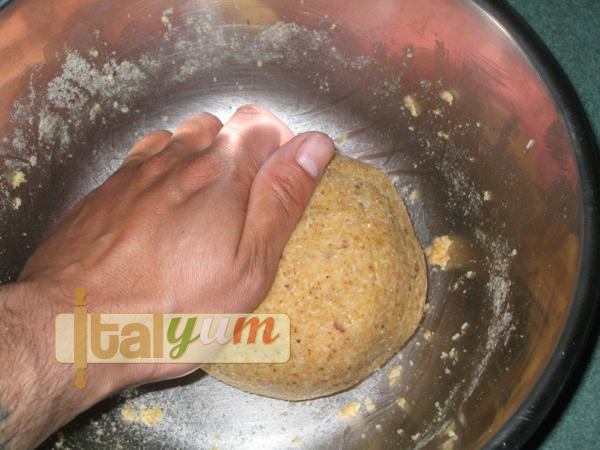
- Wrap the ball with cling film. This will help to retain the moisture, while you are getting ready for the next stages.
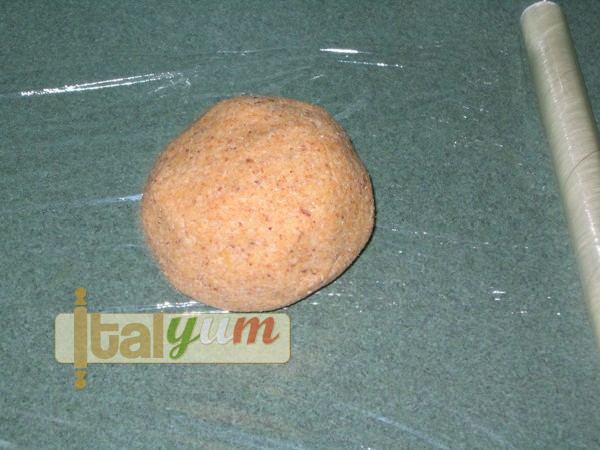
- Don’t put the ball in the fridge; just leave it in a cool place for the time necessary to get ready with the tool to make the passatelli and also to prepare the stock in which you will cook them.
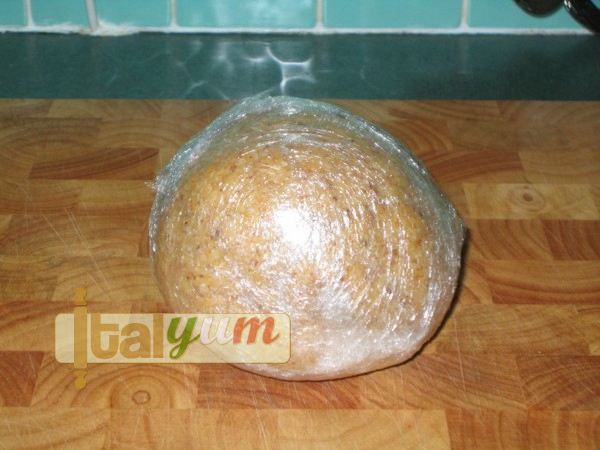
- This is the tool you need. It’s a kind of potato press, but with wider holes approx 5 mm (3/16") in diameter. In Romagna region of Italy, locals use a different traditional tool called “ferro per passatelli” that does the same job. Now, there are two schools of thought: one that says to make the passatelli and let them dry onto a working surface before throwing them into the boiling stock and one that says to press the passatelli directly over the boiling stock and let them fall straight into the boiling stock. I will describe both.
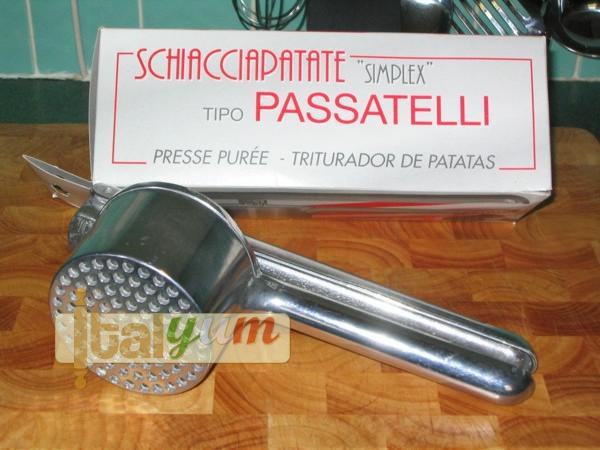
- Unwrap the ball, and make a couple of smaller balls with it, so that they can easily fit inside the tool for passatelli.
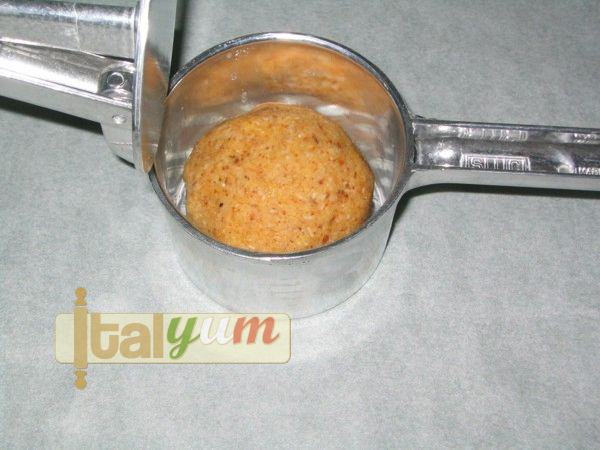
- Press all the balls through the tool and cut the passatelli when they are about 4 cm (1 3/4") long.
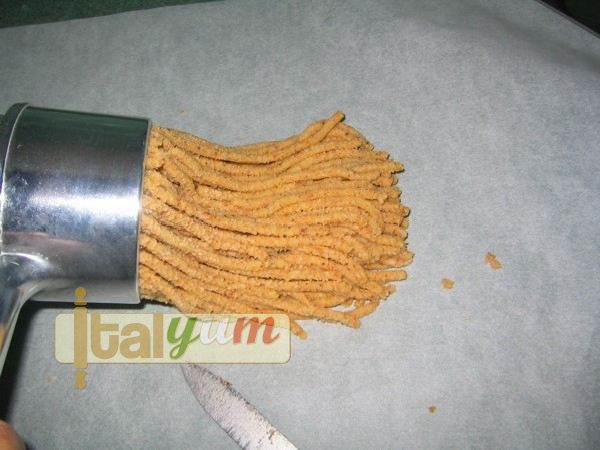
- Gently, separate them over a working surface so that they dry evenly and let them dry for an hour or two depending on the ambient temperature. I found it useful to dry them onto a parchment paper, so that when it is time to put them into the pan, I let them slide directly from the paper.
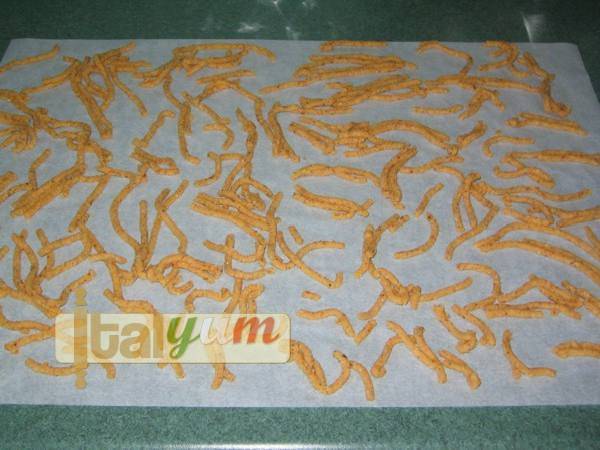
- Meanwhile, you should have prepared your chicken stock. Besides this, I also prepared a ragu’ di carne, to show the dry version of this dish.
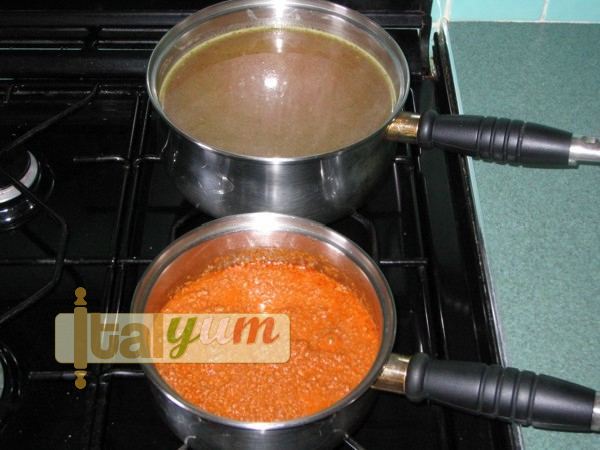
- Bring the stock to a gentle boil, put the dried passatelli into the pan and then lower the heat to a simmerring point. The passatelli will be ready when they are all afloat. Leave them into the pan for an extra minute and then take them out with a slotted spoon.
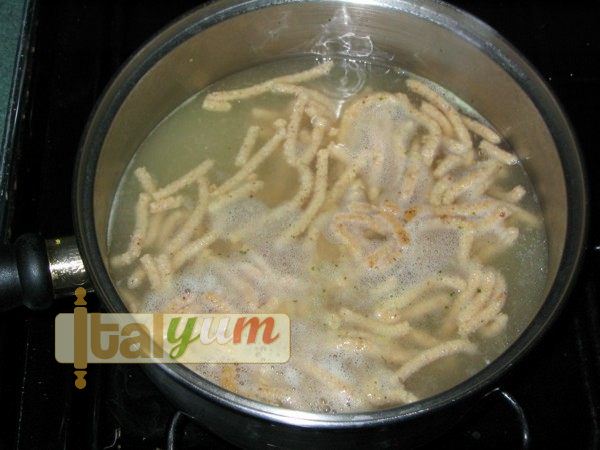
- Serve the passatelli in a bowl filled with the same stock you used to cook the passatelli.
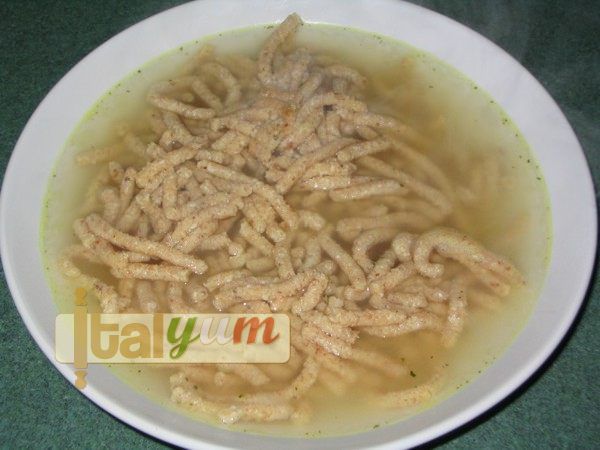
- These are the passatelli in their dry version, topped with a ragu’ di carne.
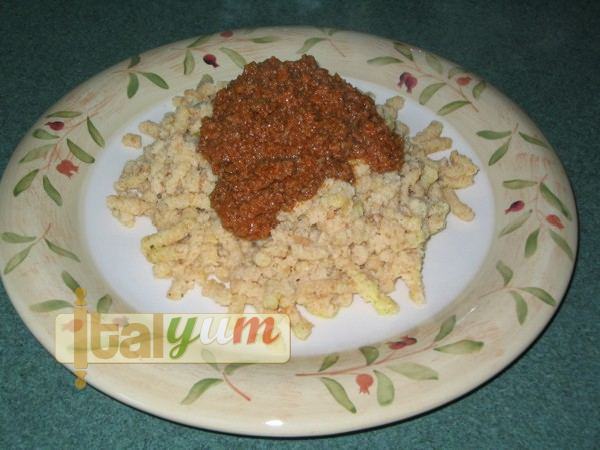
- Here, the picture shows the second method of making passastelli. Press them through, directly over the pan and when they are about 4 cm (1 3/4") long, cut them with a knife. I have found this method less forgiving because if you don’t get the right consistency of the ball mixture, the risk is that they will break once in contact with the boiling stock (this is why some people add flour into the mixture). For this method, you may have to try it few times before you nail it.
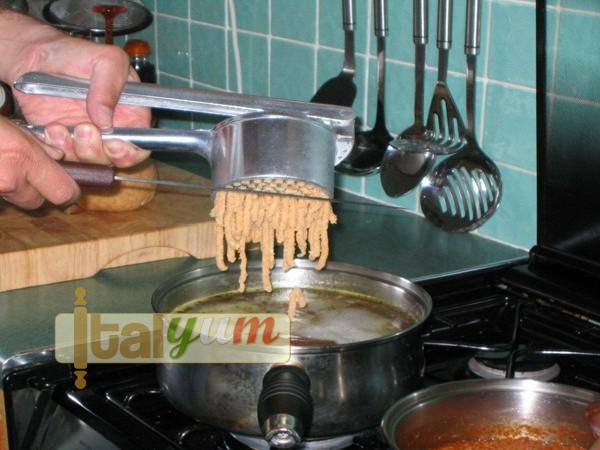
Nutrition
Calories: 650kcal
Tried this recipe?Let us know how it was!

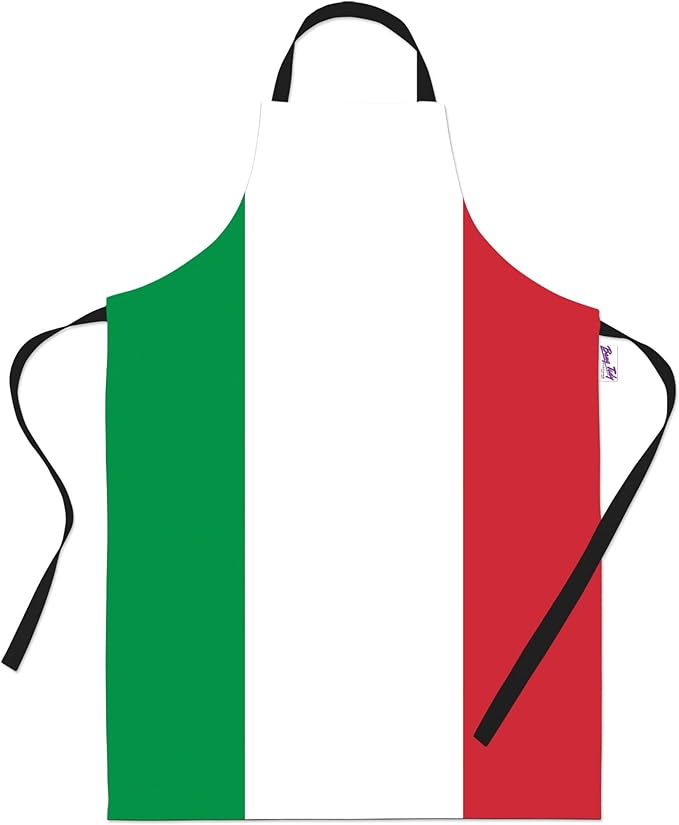

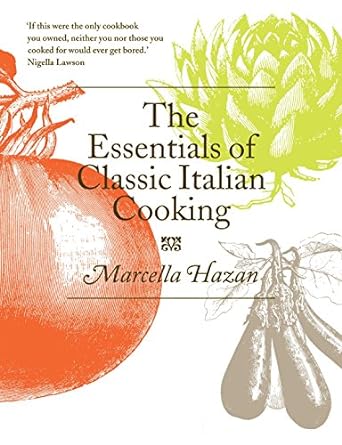
gonna try this – watch out, I am Sicilian!!
Why is it so hard to squeeze my dough through the ricer? I do same amounts of bread crumbs and grated Parmesan, like your recipe. Maybe one more egg than you say. And my Ma and Nonni would use some oil. When I squeeze through ricer, it is so difficult it kills my hands and arms. What am I doing wrong?
Please help! They taste delicious but I don’t look forward to make them because of that.
I make passatelli all the time – my grandmother’s recipe. It is similar to this recipe but also with a cinnamon and black pepper added. I also use pecorino romano cheese instead of parmesan. It can be very difficult to put through the ricer. I add some fresh lemon juice in some water to soften the mixture. If it is too hard to put through the ricer, I add more of this liquid. I usually squeeze my ricer pushing the top arm with both hands… with the bottom ricer arm on the edge of the counter. I pull out a cabinet drawer and place a tray in it to catch any that drop.
Thank you for your great tip!
My nonna made passaelli exactly the same way except she passed the dough through a hand crank meat grinder with a large hole plate. This dish is a real treat and there’s nothing else like it!
I always come back here for a reminder but I make it a little different. My family also used an equal amount of cinnamon as nutmeg and also we used more lemon zest and also use the lemon juice (2 whole lemons for a triple batch following the above instructions.
I mostly wanted to offer an idea to those who have a tough time using a ricer I found this curious thing.
https://i.gyazo.com/35be0aff5c988067c25fb09475e76fb6.png
I find its so much nicer on the hands and makes it a bit easier if your solo cooking
Anyways thanks for the recipe, took me so long to find it cause my family didn’t actually know the name it was just the “holiday soup” to us XD
This Passatelli in broth recipe looks amazing! I can’t wait to try making it at home. The flavors you described remind me of family gatherings during the holidays. Thanks for sharing!
This Passatelli in broth recipe looks amazing! I’ve always wanted to try making it from scratch. Your tips on achieving the perfect texture are super helpful. Can’t wait to give it a go this weekend!
This Passatelli in broth recipe looks incredible! I love how comforting and rustic it is. Can’t wait to try making it at home, and I appreciate the step-by-step instructions!